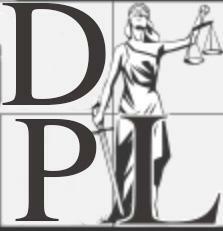1.The former President of the European Commission and prominent figure of the French left passed away on Wednesday 27th aged 98.
Leaders of the European Union have paid tribute to the late Jacques Delors.
He was “a visionary who made our Europe stronger” and whose “work… shaped entire generations of Europeans”, wrote EU Commission President Ursula von der Leyen.
“His life’s work is a united, dynamic and prosperous European Union… Let us honour his legacy by constantly renewing our Europe,” she added.
Delors, himself an ex Commission President between 1985 and 1995, passed away on Wednesday at his home in Paris, according to his daughter.
From Brussels, he shaped the contours of contemporary Europe: Setting up the single market, signing the Schengen agreements, the Single European Act, launching the Erasmus student exchange program, reforming the Common Agricultural Policy, setting in motion the Economic and Monetary Union that led to the creation of the Euro.
Delors “entered history as one of the builders of our Europe”, said European Council President Charles Michel said, describing him as a “great Frenchman and great European”.
He “led the transformation of the European Economic Community towards a true Union based on humanist values and supported by a single market and a single currency,” added Michel.
A former Economy Minister under François Mitterrand, Delors dashed the hopes of the Left by refusing to stand in the 1995 presidential election, when he was the clear favourite in the polls.
At the end of 1994, his spectacular renunciation of a presidential candidacy, announced after six months of suspense live on television in front of 13 million viewers on Anne Sinclair’s program “7 sur 7”, stunned the French.
“I’m going to be 70, I’ve been working tirelessly for 50 years and it’s more reasonable, in these conditions, to envisage a lifestyle more balanced between reflection and action,” he had declared, his blue eyes drooping in front of the camera.
His political career then came to a halt, and from the mid-90s onwards, Delors continued to fight almost as a simple activist.
With his think tanks, the “Club Témoin” and “Notre Europe” (which later became the “Institut Jacques-Delors”, with offices in Paris, Brussels and Berlin), he argued to the bitter end for a stronger European federalism, calling for greater “audacity” in the face of Brexit and attacks from “populists of all stripes”.
2.Born in Paris on 20 July 1925 into a Catholic family, Delors went from parish patronage to the Jeunesse Ouvrière Chrétienne (JOC), to which he remained attached throughout his life.
He was a Paris bank messenger’s son.
An admirer of Pierre Mendès France, he waited until 1974 and the age of 49 to join the PS, in the hope of “being useful”.
As head of public finance under Mitterrand, he was one of the initiators of the austerity measures introduced in 1982, preventing France from plunging into inflation.
In 1948, he married Marie Lephaille, a colleague who shared his trade union and religious convictions, and who died in 2020. They had two children: Martine Aubry, born in 1950, and Jean-Paul, born in 1953, who died of leukaemia in 1982.
In 2021, he told Le Point he had “no regrets” about his career, though he was clear he had not always been right.
“I was too concerned with independence, and I felt different from those around me. My way of doing politics wasn’t the same”.
President Emmanuel Macron paid tribute to Delors on Wednesday via X, formerly Twitter, hailing him as an “inexhaustible craftsman of our Europe”.
“His commitment, his ideals and his uprightness will always inspire us. I salute his work and his memory, and share the grief of his loved ones”, the French premier wrote.
(By Euronews)

Commenti recenti